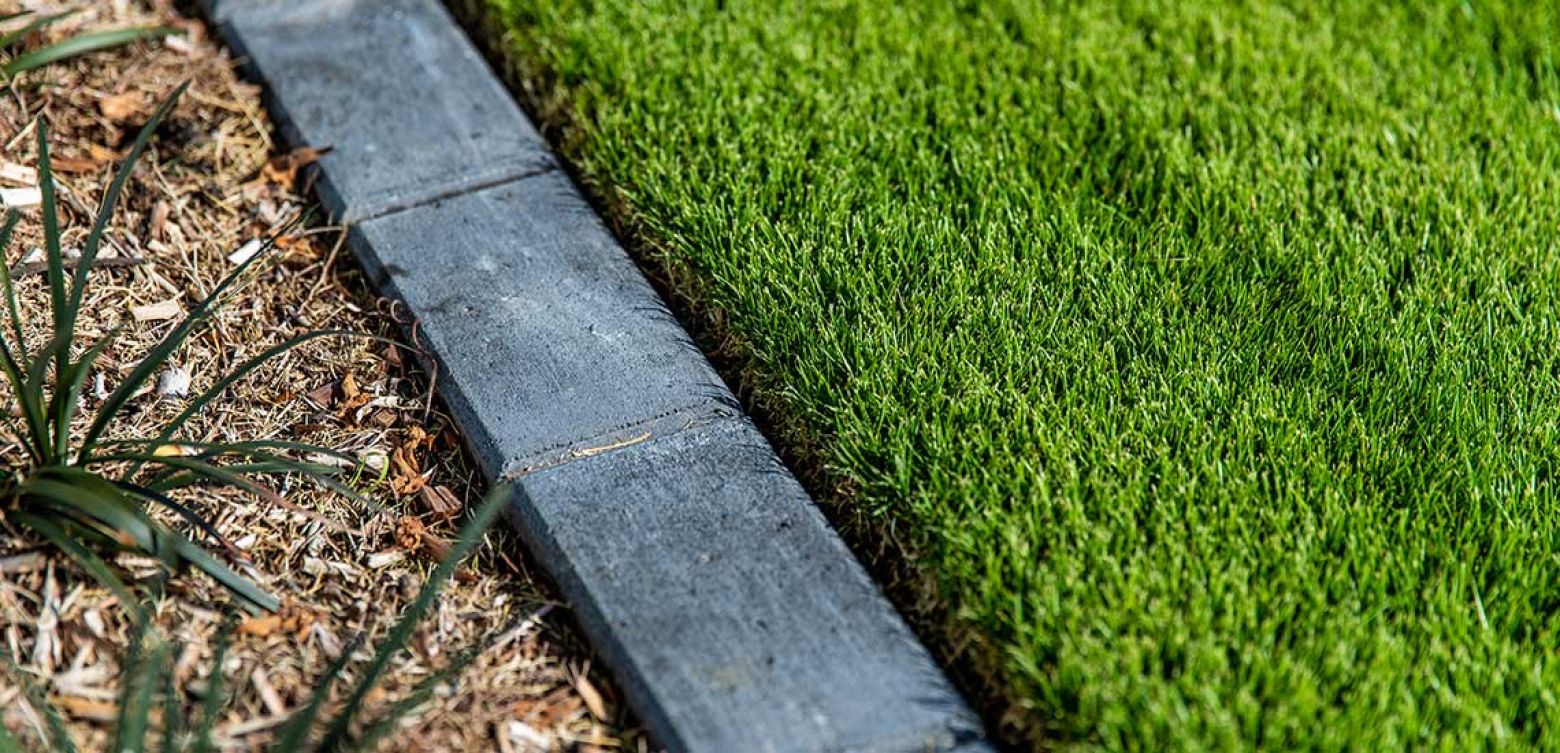
The Art of Edging
Finishing your lawn off with a nice edge is much like adding a frame to a painting and will make all the difference in the final presentation of your lawn.
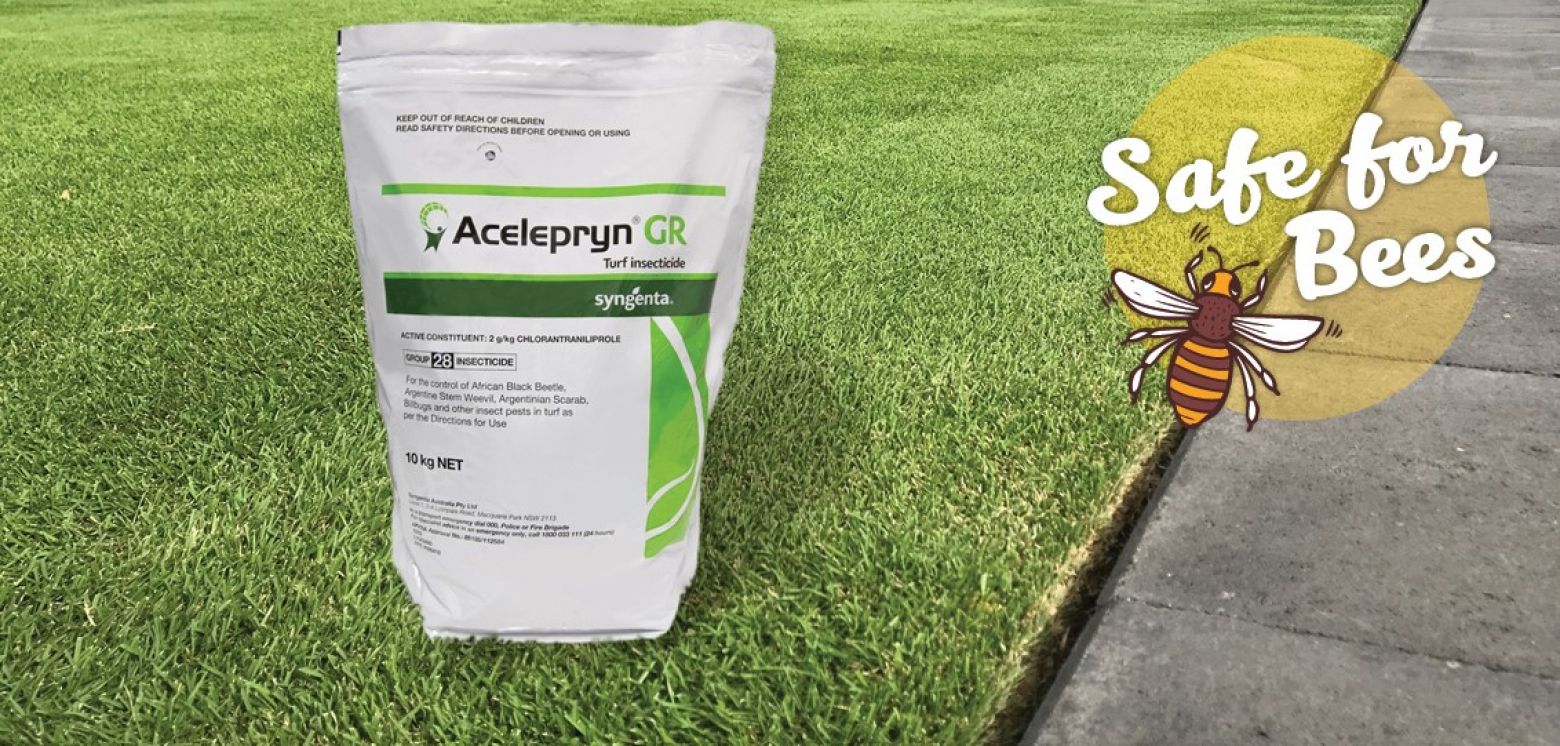
Bee safe – safeguard for your lawn
The threat to your lawn from the heat of summer is coming to an end, but the threat to your lawn in the form of root and leaf eating grubs, caterpillars and insects remains; some of these nasty critters can keep attacking right through the months of autumn. Now is the time to safeguard against them.
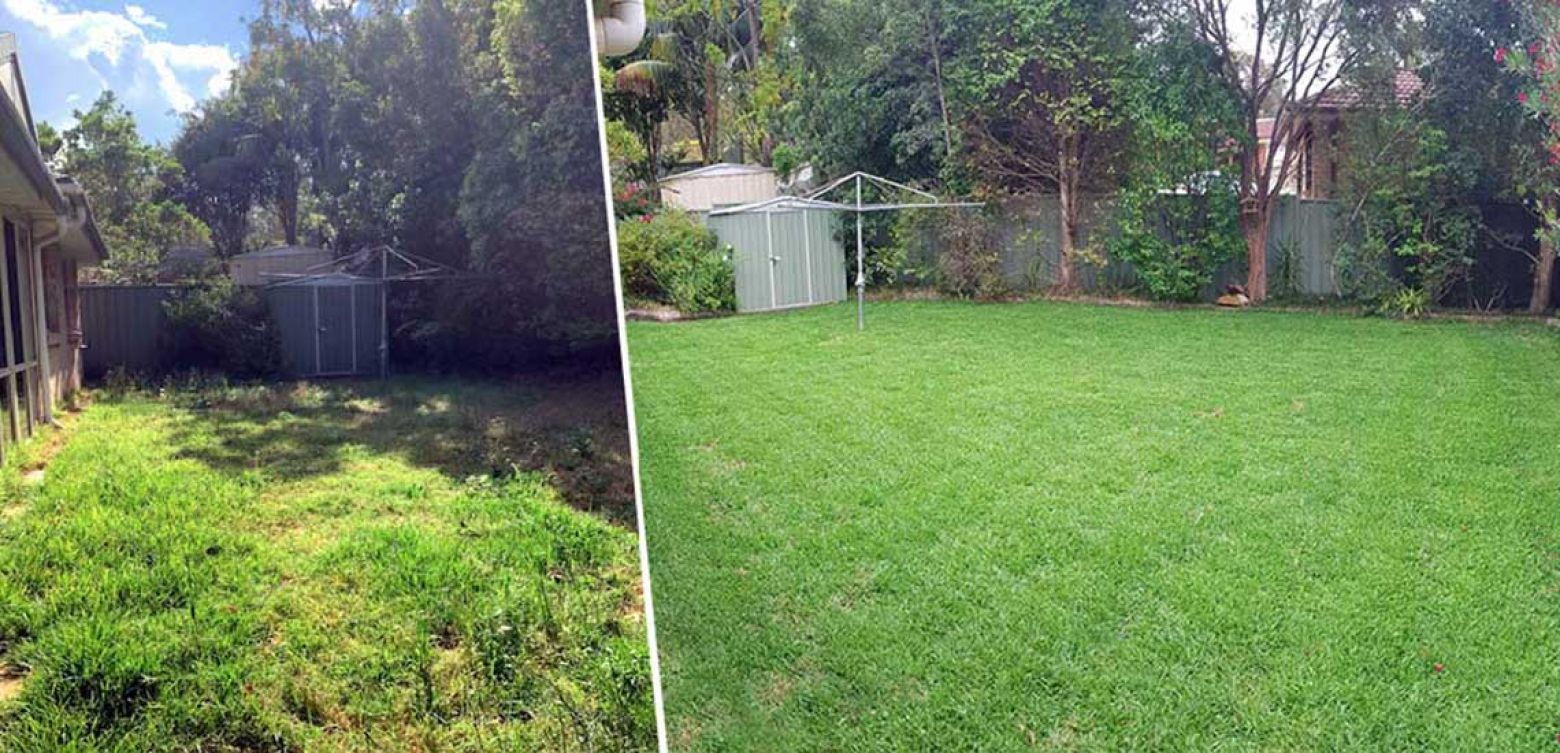
Thinking of replacing your lawn?
Follow these 4 expert tips for best results
Compaction, increased shade and wear are the biggest reasons to renew your lawnLawn replacement is a cheaper option than other surfaces in most casesChoose the right type of lawn to get the best return on your investment
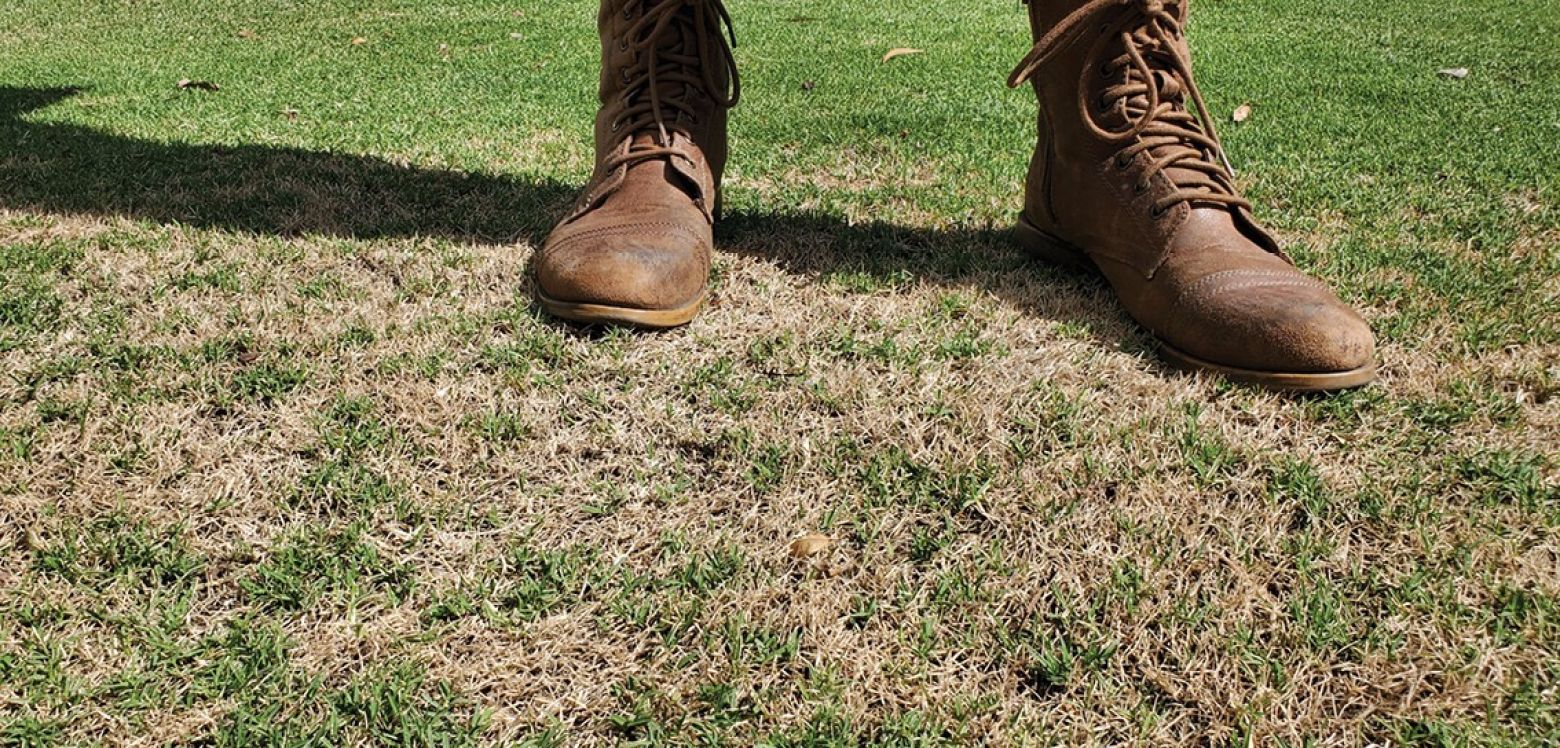
Does your lawn have dry spots?
Hot and dry weather can really take a toll on even the healthiest lawns and cause them to become thin and patchy. This usually happens over the summer months, as the weather is hot and dry and lawn owners are generally on holidays or too busy to keep up their regular lawn maintenance schedule. It only takes a couple of days of hot, dry weather to affect your lawn.

Tips to help beat the heat
Drought conditions are impacting a lot of areas at the moment and being environmentally responsible with water use is more important than ever.
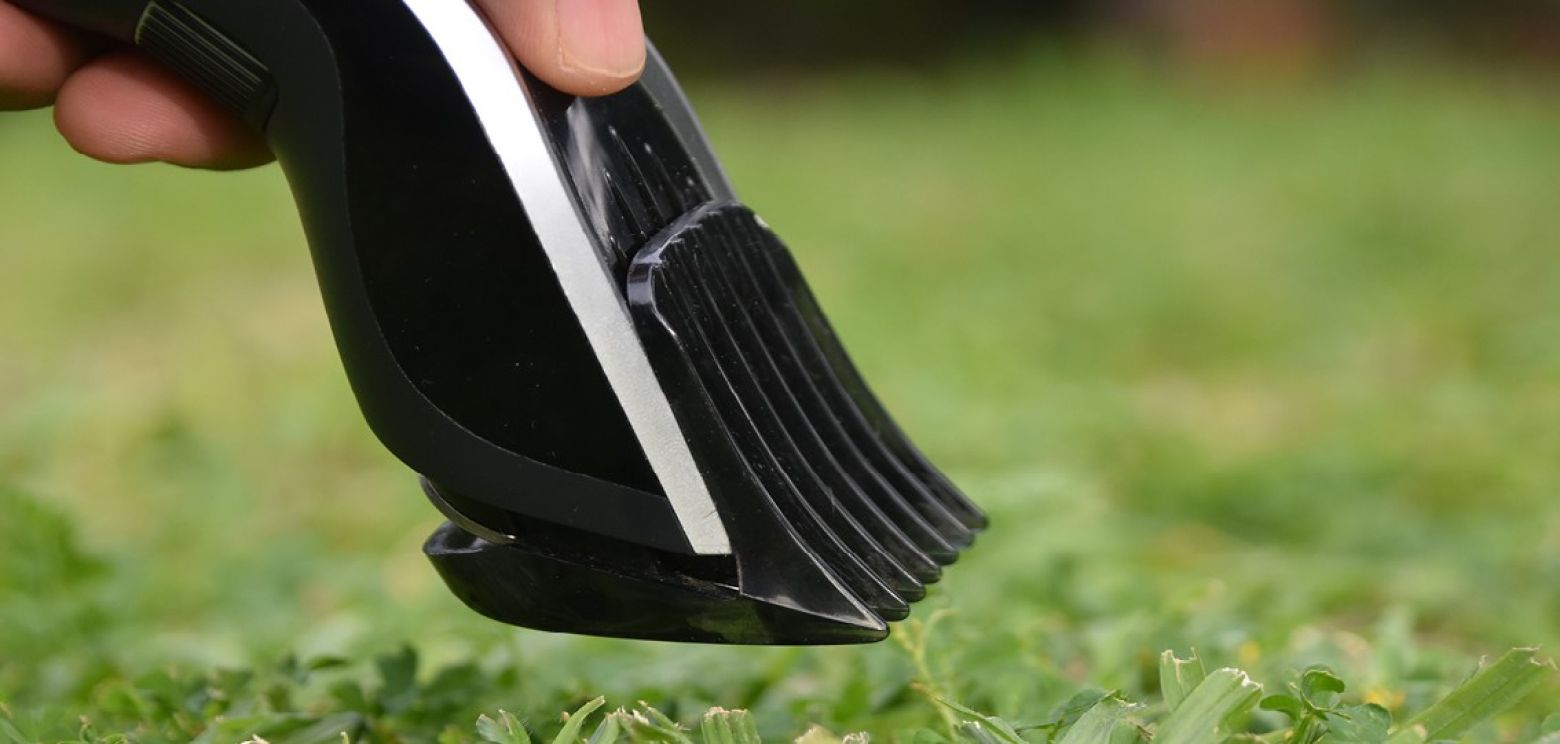
How to cut grass properly
A well cared for, freshly mown lawn not only looks awesome, it’s also great to walk on and play on. Anyone can achieve it. The right length of grass is critical to its health and weed minimisation. Check out the guide below to determine the height of lawn that works best for you and is best for your lawn.
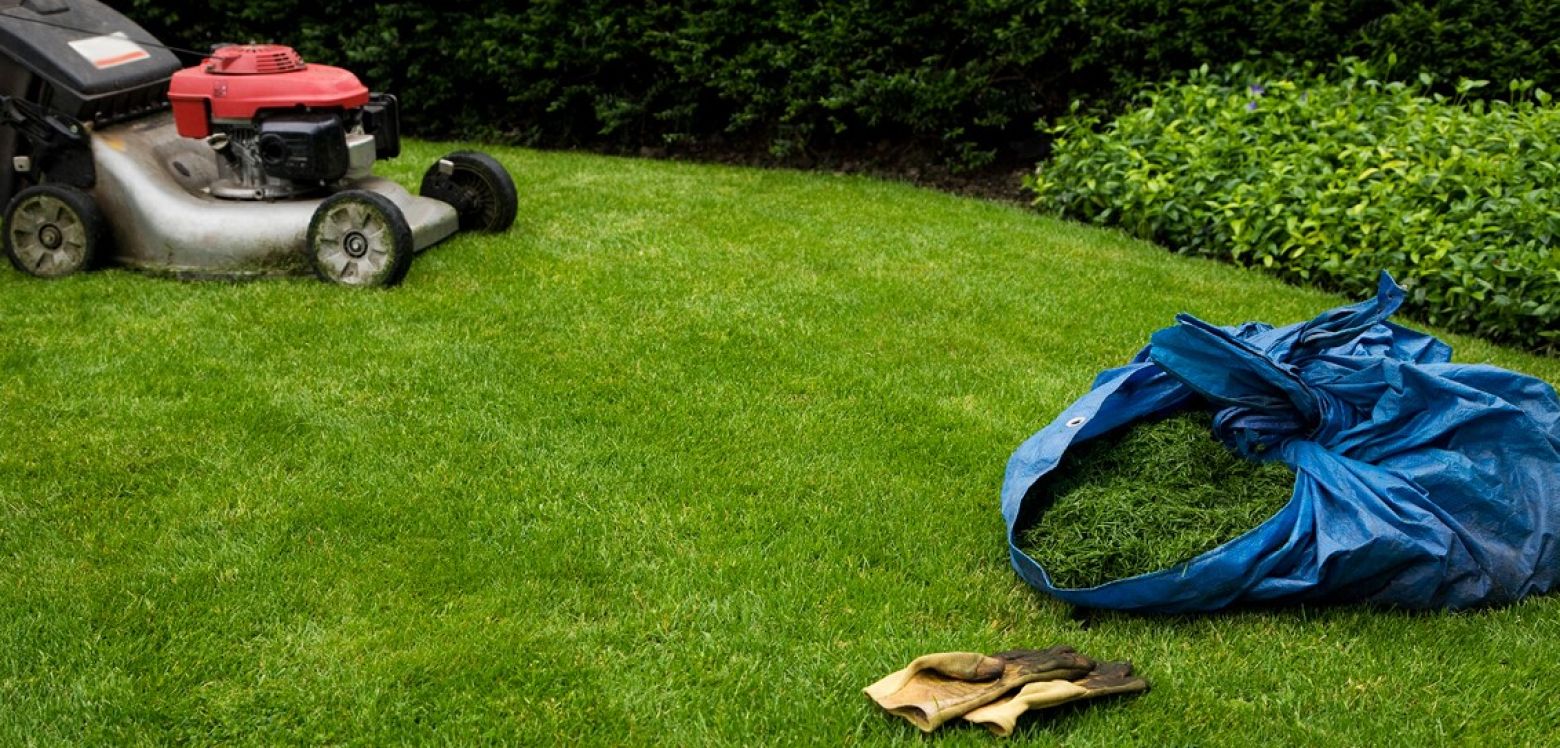
Catch, rake or leave it?
To catch or not to catch? Grass clippings that is. Should you catch, rake or leave your grass clippings when mowing your lawn?
There is no definitive yes or no answer to this, as a combination of both is required for most lawns.
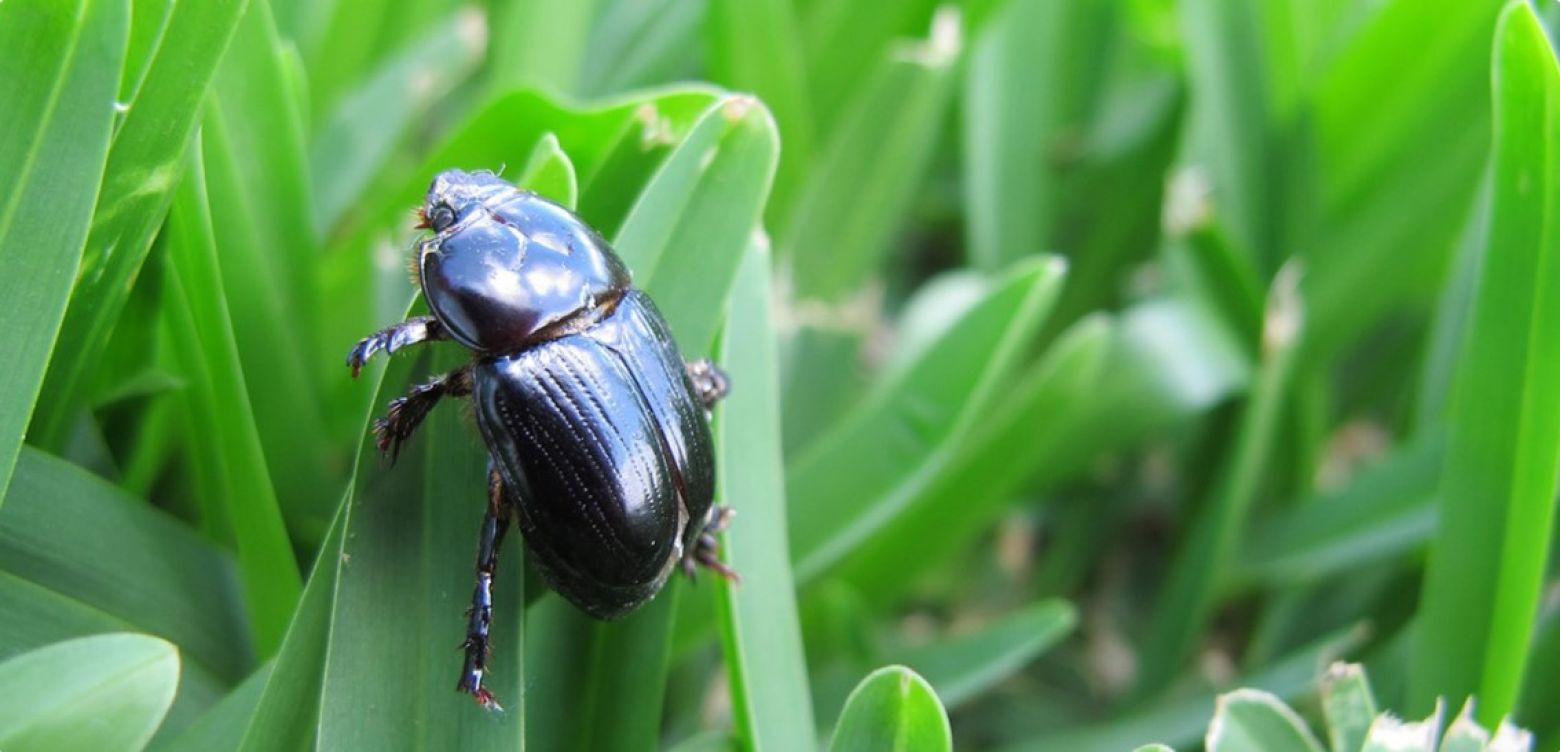
African Black Beetle
Scientific name: Heteronychus arator
Black beetles can be a common sight in and around your lawn. They are
a natural part of the ecosystem and play an important role. We
sometimes hear from people who have noticed them in their lawn and are
concerned that they may be damaging their grass.
Here’s what you need to know…

How to add value to your home
You don’t have to spend thousands of dollars to increase your home’s appeal. Simply investing a little time in a clean and tidy can do wonders for your home’s street appeal and value. Of course, sometimes a small outlay can make further substantial improvements. Let’s focus on the front of your house, which is where the first, and lasting impression may be made.

Which veggies will you nurture this spring?
Butter on barbecued corn … from the veggie patch in your lawn. Mmmmm.
What? You don’t have a veggie garden? Well, get out your string line!
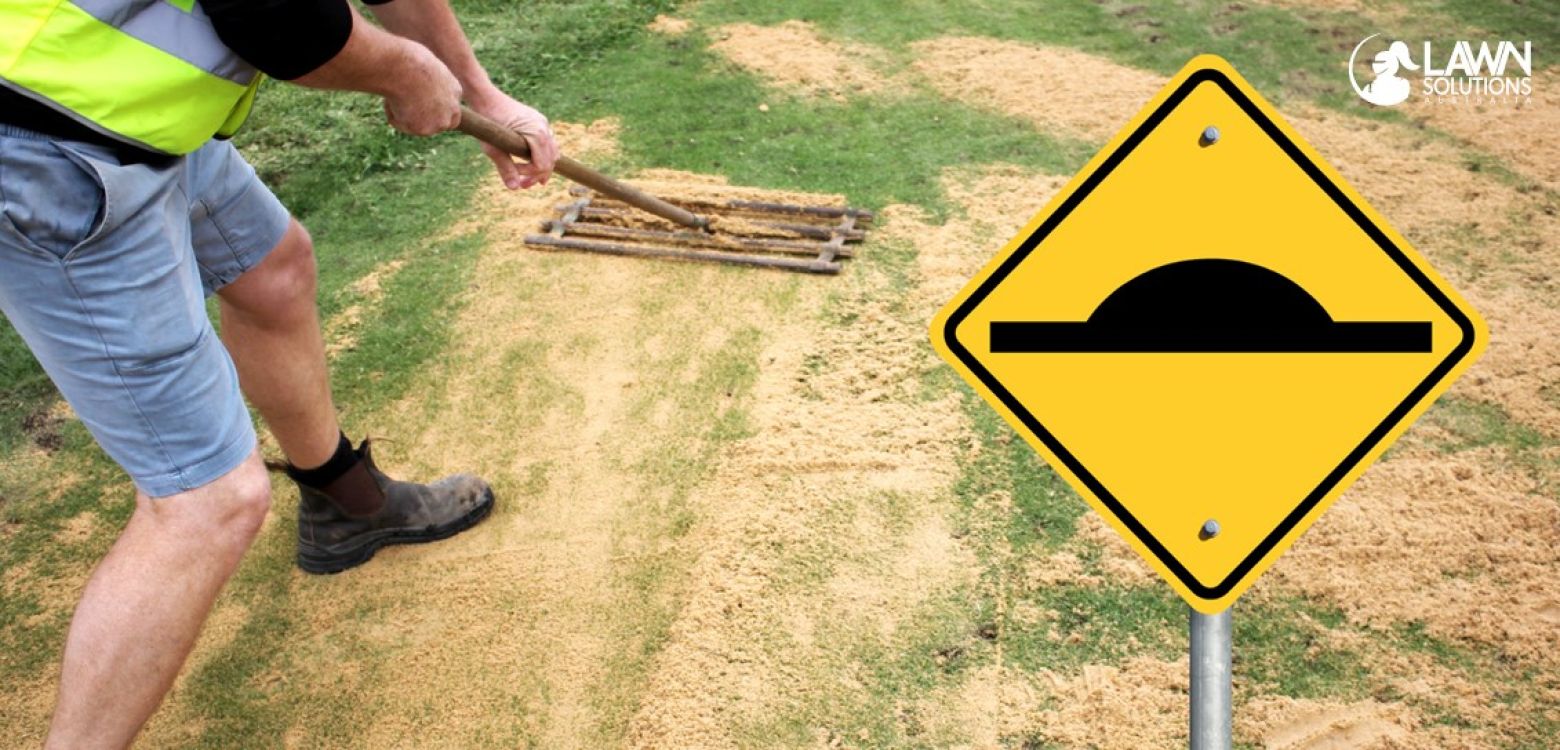
How To Top Dress Your Lawn
When is top dressing a lawn necessary?
In most cases top dressing is done to correct poor preparation and lack of soil underneath or to fill in low spots and correct uneven areas in the lawn. If your lawn is well fertilised, healthy and even, then you don’t need to worry about top dressing.

5 Gift Ideas for Mother’s Day
Mums love their lawns because they provide a place for their family to create memories.
We want our mum’s lawn to be up to scratch and easy to manage, with more time for the good stuff.
Here’s some gift ideas we are sure she will enjoy this Mother’s Day…
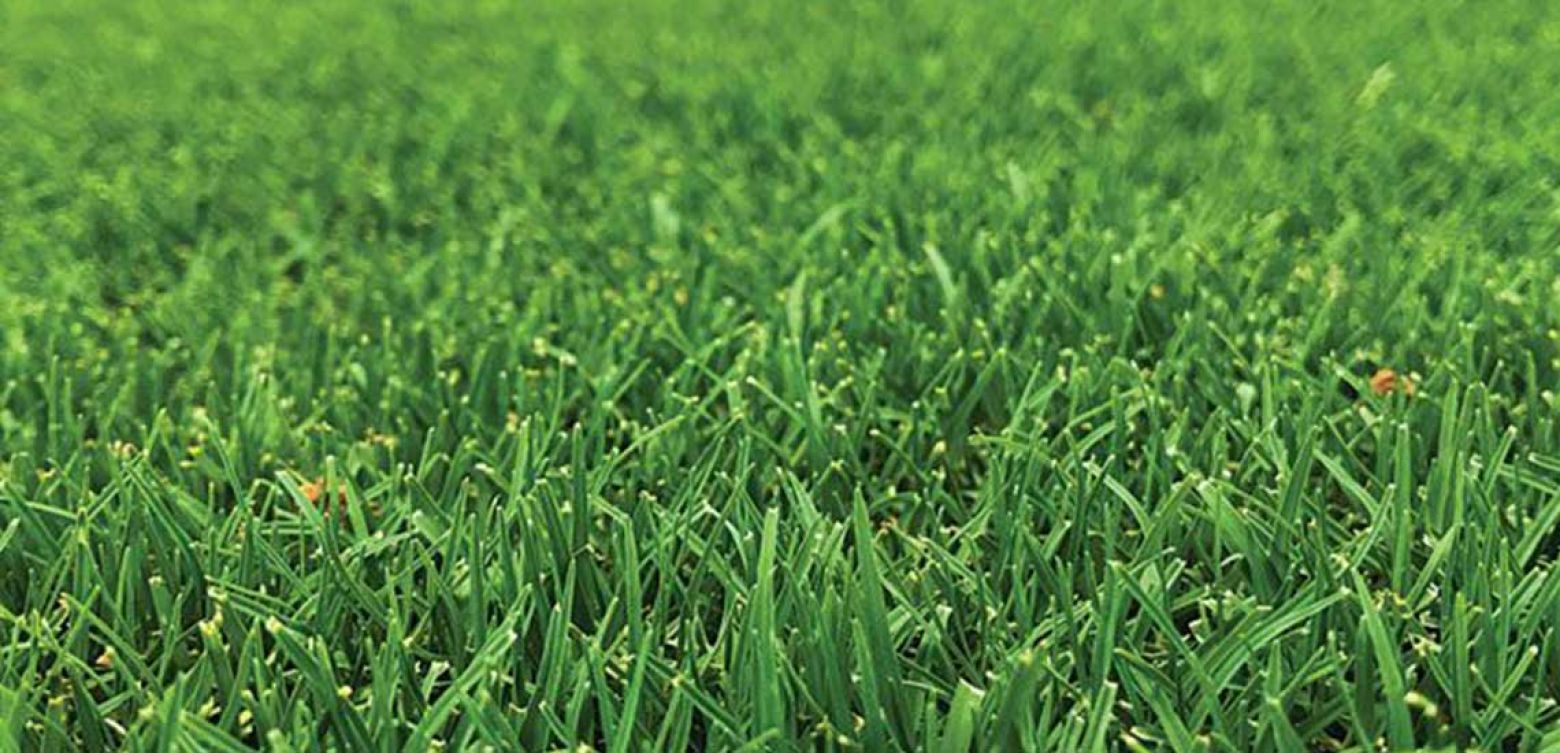
TiffTuff – The Game Changer
The world’s leading turf scientists chose to breed TifTuf Hybrid Bermuda (Couch grass) over 30,000 other turf varieties!
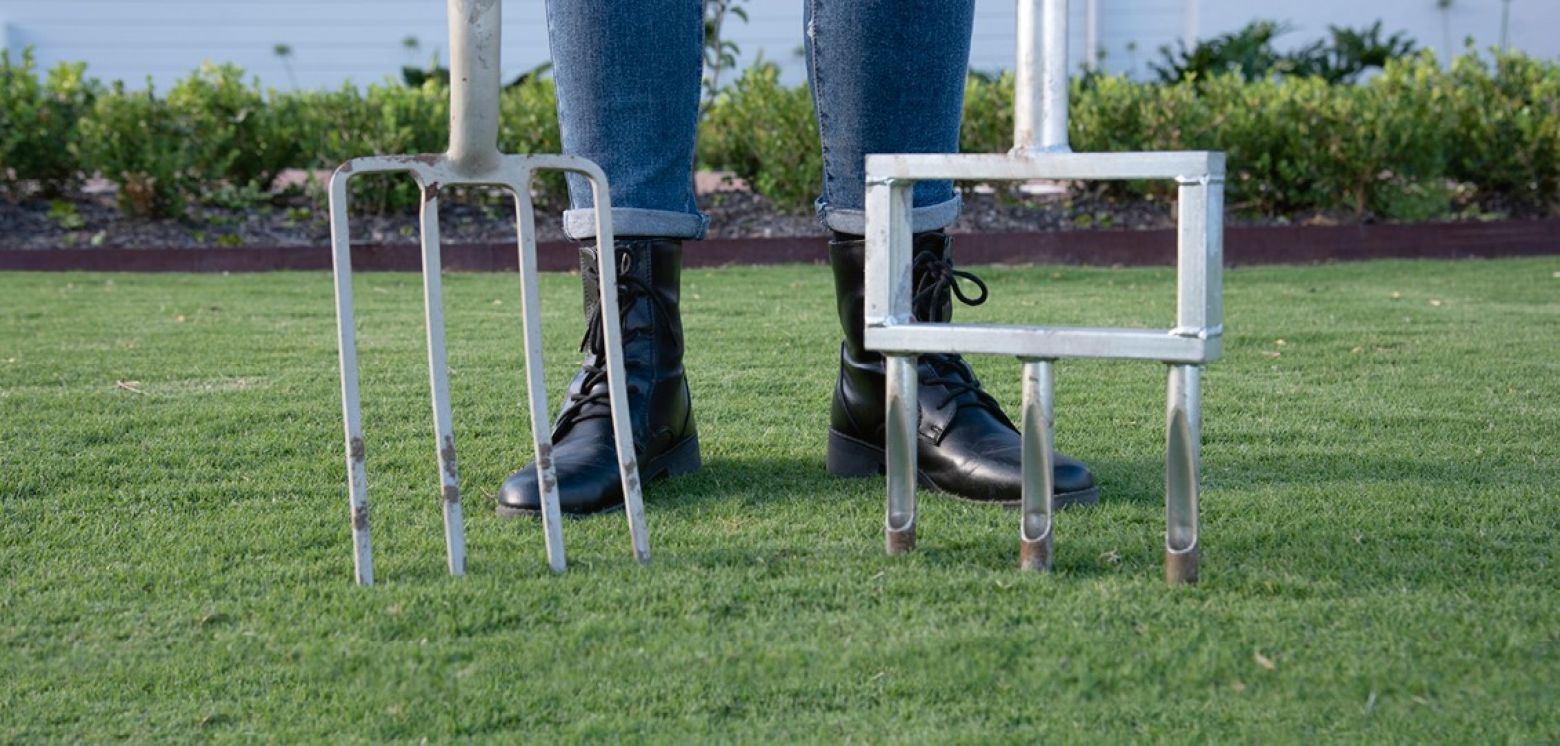
Should I core my lawn?
What is core aeration? Should I core my lawn?
Unlike regular aeration, where solid tines simply punch holes in the ground, core aeration removes a plug of soil from your lawn at the same time. Plug or core aerators do this by using hollow tines that puncture the surface and then pull the plugs from the ground on their way back out.

Do I need to use a wetting agent on my lawn?
Wetting agents are like a detergent or surfactant that attract water to the soils surface, helping it to soak in.Hydrophobic soils repel water which can lead to serious problems in the garden and lawn.For existing lawns that are hydrophobic, a wetting agent is needed.
